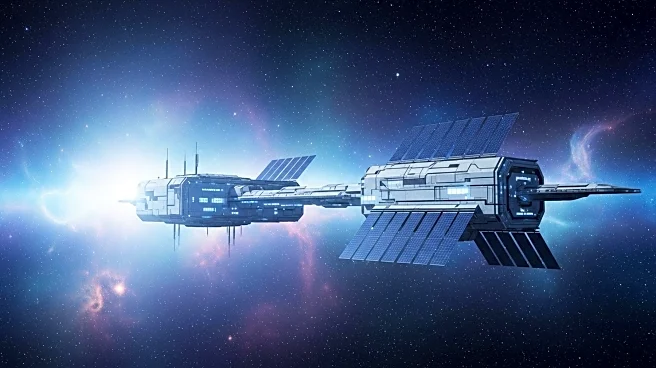What's Happening?
NASA is preparing for the decommissioning of the International Space Station (ISS) in 2030 by fostering private sector involvement in low Earth orbit operations. The agency has launched the Commercial LEO Destinations program to encourage private companies to develop their own space stations. NASA plans to become one of many customers renting time and space on these stations, rather than building a new ISS itself. Companies like Axiom Space, Orbital Reef, and Starlab are leading the charge, with Axiom Space planning to launch its first module in 2027.
Why It's Important?
The transition from a government-led to a commercially-driven presence in low Earth orbit represents a significant shift in space exploration strategy. This approach could lead to increased innovation and reduced costs for NASA, while also opening up new commercial opportunities in space tourism and manufacturing. The success of this model could ensure a continuous human presence in space and maintain U.S. leadership in space exploration.
What's Next?
Axiom Space plans to launch its first module in 2027 and attach it to the ISS, eventually detaching it to form a standalone station. The success of this and other private ventures will determine the future of U.S. operations in low Earth orbit. NASA's experience with the Commercial Crew Program, which successfully developed the Falcon 9 rocket and Dragon spacecraft, suggests that this model could be effective.
Beyond the Headlines
The shift to commercial space stations could lead to new industries and economic opportunities in space. The involvement of multiple partners in space operations may also foster international collaboration and innovation. However, the political future of projects like the Lunar Gateway remains uncertain, highlighting the need for stable funding and strategic planning.











